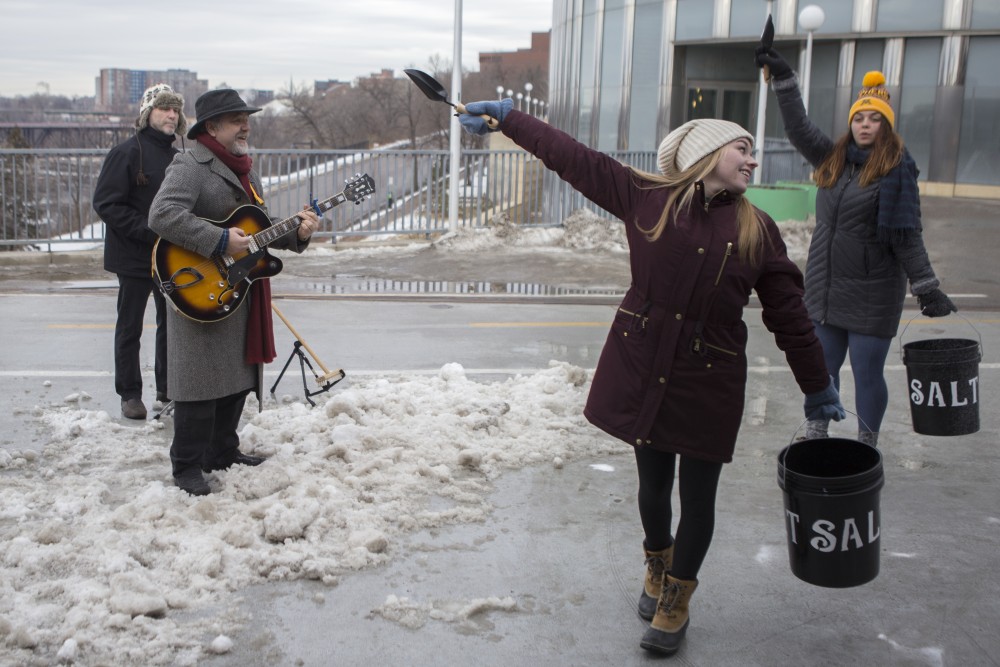A group of music researchers hope partnerships with communities across the world will raise awareness about environmental issues.
Members of the team of musicologists, led by a University of Minnesota professor, will travel to five locations this summer to make a series of music videos focused on sound-related environmental issues. The researchers believe the videos’ messages will have direct impacts on the communities involved.
The groups will rely on a research methodology developed by University professor Mark Pedelty that aims to take “field work and convert it into something that matters for the communities we work with,” he said.

The Field to Media method — which describes projects that involve both an academic and media product — is a solution to what Pedelty calls the humanities’ “scholar critic dilemma”: Too much of the work in the humanities involves criticizing others’ creative products, he said.
This method gives researchers the opportunity to participate as activists in the issues they study rather than remain objective observers, said Rebecca Dirksen, a professor in the Department of Folklore and Ethnomusicology at Indiana University who will travel to Haiti this summer.
Researchers will travel to five separate locations: Haiti, China, India, Tanzania and the Salish Sea.
Pedelty will work in the Salish Sea — a region comprising western Washington state and British Columbia — where noise pollution from ships, growler jets and trains interrupt animal communication. He said he hopes to involve local musicians and singers and dancers from the Lummi nation.
Elja Roy, a University graduate student, will be traveling to the Sundarbans, a shared network of mangroves and inhabited islands on the border of India and Bangladesh. Her part of the project remains to be defined, but she hopes to form contacts with local musician activists and may explore topics like endangered species.
“Since we are Hindu, we associate supernatural powers with all the environmental resources, and there are gods for trees,” she said. “There are songs to worship those trees, and perhaps … I can work on that, too.”

Dirksen will travel to Haiti, where she has already done work focused on “musical responses to too much trash and too few trees.” She hopes to use her Haitian film-making contacts to produce two videos — one about sanitation and one about deforestation — with local artists, who could include traditional rasin musicians or rappers who perform rap creole.
“I’d like to involve as many different types of people as possible in these videos,” she said.
The researchers will ultimately return to Minnesota for post-production, where they will put finishing touches on the videos with Karl Demer of Atomic K studios, a Midwest region Emmy- and Grammy-winning producer.
The researchers plan to ensure the communities involved retain ownership over the videos and can view them at the end of the project. Depending on the community, the videos may be disseminated through media such as Facebook, film festivals and a service called Loop used to share videos in Haiti.







